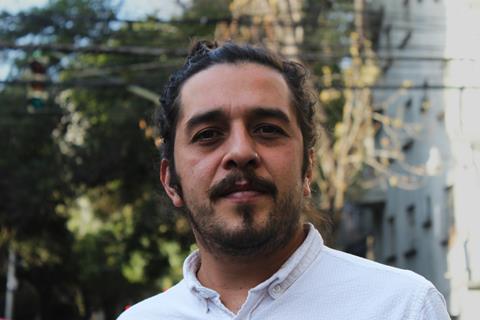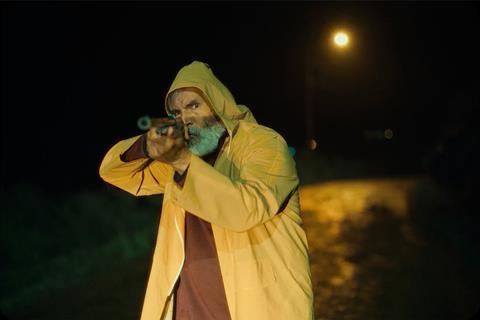
Ariel Escalante Meza, whose second feature Domingo And The Mist is being showcased as a work-in-progress at the Doha Film Institute’s Qumra event this year, is a pioneering force of nature in Costa Rica’s burgeoning filmmaking scene.
The director’s 2016 debut feature The Sound Of Things, about a woman coming to terms with the suicide of a beloved cousin, was Costa Rica’s submission to the 2017 Academy Awards. He is also a much-in-demand editor, with recent editing credits including Costa Rican director Sofía Quirós’s Land Of Ashes, which played in Cannes Critics’ Week in 2019.
Combining strong social themes with elements of fantasy, his new work revolves around the titular 65-year-old Domingo, whose house and land is due to be expropriated to make way for the construction of a highway. He refuses to leave because it is the place where the ghost of his deceased wife returns to him in the mists.
“Expropriations are a constant in Costa Rica as has been the case throughout Latin America for different reasons,” says Escalante Meza.
Costa Rican scene
Domingo And The Mist is the first feature to come out of Incendio Cine, the Costa Rica-based production company, Escalante created in 2019 with Mexican-Guatemalan director Julio Hernández and Costa Rican cinematographer Nicolás Wong Diaz.
“We felt the film industry in Central America was getting stronger and stronger every day but that it was very safe. We wanted to be punks and to make more of a type of punk cinema, that was coherent with our realities and our aesthetics, rather than importing foreign forms of making cinema, not just in terms of the aesthetics but also in terms of production,” explains Escalante.
Domingo And The Mist embodies this ambition. The film was shot on location in May 2021, in the impoverished mountain town of Cascajal de Coronado above the Costa Rican capital of Saint José. The cast features a mix of professional actors and local amateurs. Carlos Ureña, who trained as an actor but had very few professional roles, plays the titular Domingo.
“We wanted to make a film with very little money, that was executed pretty fast. We shot it with a documentary-style crew in just over three weeks. It was like a fire in the soul operation,” explains the director.

He cites the work of Thai filmmaker Apichatpong Weerasethakul as well as 1980s experimental groups Coil, out of the UK, and Germany’s Einstürzende Neubauten as sources of inspiration for both the process of making the film and its aesthetics.
“I was also inspired by Karl Marx, who is at the heart of everything I do in my life. I wanted to make a film that was openly political. Costa Rica is a place known as the Switzerland of Central America because we’re very neutral. Stuff doesn’t get discussed openly that often. I wanted to make a film that was punk from every point of view, from its aesthetics to the way we produced it, to what it says,” he explains.
In addition to the low-budget and guerrilla-style shoot, Escalante and his crew also took the decision to produce the special effects around the dead wife’s ghost, physically during the shoot. Her presence is suggested by swirling mists rather than an actual bodily appearance.
“We decided to do all the VFX on location. I wanted that texture of life itself, playing along with us,’ says Escalante.
The crew used spray guns and a mist-making solution to create the effect. Escalante admits it was a challenge but says he is pleased with the final result.
“It was a matter of getting to understand the elements and what we could achieve. The best time was when it looked like it was about to rain, but it wasn’t actually raining. The art director and the line producer would be running around all over the set, with these kinds of machine guns filled with mist solution, shooting it here and there and then hiding. It was frustrating but fun and part of the challenge.”
The film is in post-production, with the support of the DFI, with Escalante Meza aiming to debut the film at a festival later this year.

























No comments yet